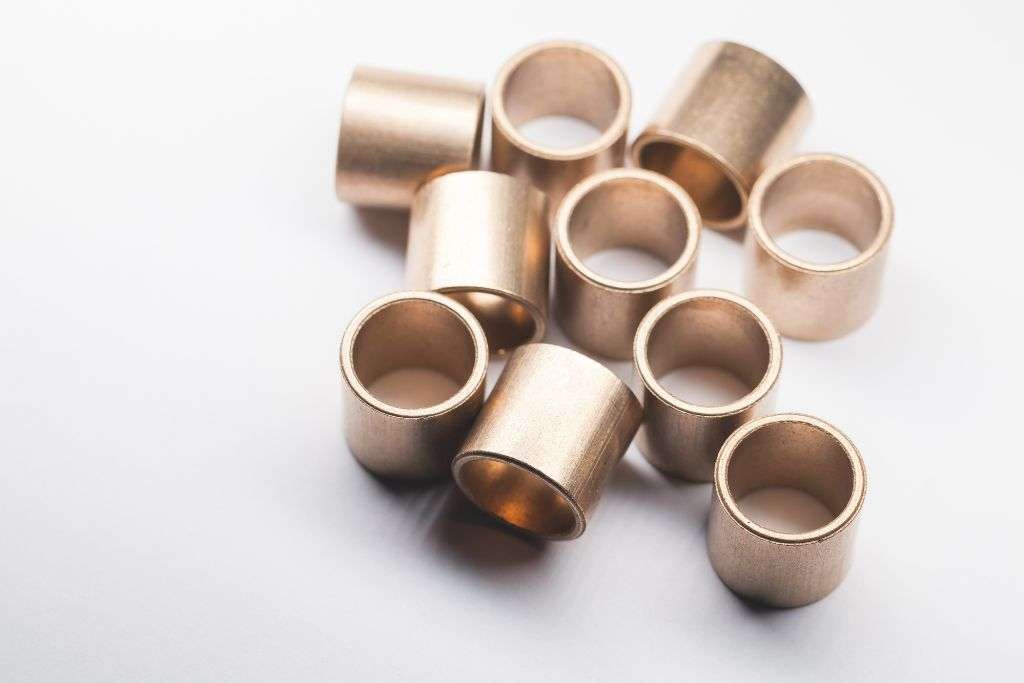
Aug 21,2024
The choice of bearings is often pivotal in mechanical engineering and machinery. While numerous types are available, one category that stands out for its unique advantages is bush bearings.
At the core of bush bearings lies the marvel of precision needle bearings. These tiny yet robust components offer exceptional advantages that make them indispensable in various applications.
Imagine this: you're pushing a heavy box across the floor. It grinds, it creaks, it takes all your might. Now, imagine the same box gliding effortlessly on a layer of ice. That's the difference bush bearings make. Creating a low-friction surface between moving parts reduces the effort needed to keep things in motion. This translates to:
Less friction means less energy wasted overcoming resistance. This yields lower operating costs and improved machine efficiency.
No more grinding noises! Bush bearings dampen vibrations and create a quieter operating environment. Imagine a factory floor without the constant din - a welcome change for everyone.
With friction minimized, the wear and tear on your machine components is significantly reduced. This translates to longer lifespans, fewer repairs, and less money spent on maintenance.
Bush bearings are the workhorses of the bearing world. Roller and ball bearings have a simpler design, unlike their more complex cousins. They're typically a single piece, often made from materials like bronze, nylon, or rubber. This simplicity offers several advantages:
Forget about intricate assemblies. Bush bearings are straightforward to install, saving you time and effort.
Bush bearings have a more straightforward design, which means they have a lower price tag. As a budget-friendly option for many applications, bush bearings are a good choice.
In tight spaces, every millimeter counts. Bush bearings often have a smaller footprint than roller or ball bearings, making them ideal for applications with limited room.
Many bush bearings are self-lubricating. This means they have built-in lubricants embedded in the material itself. As the bearing moves, these lubricants are released, creating a smooth, low-friction surface. This offers several benefits:
There is no need for constant oiling or greasing, as self-lubricating bearings take care of themselves, minimizing maintenance requirements.
Because they don't require external lubrication, so bush bearings are less susceptible to contamination by dirt, dust, or debris. This is especially important in harsh environments.
Self-lubrication makes bush bearings suitable for applications where external lubrication, like food processing equipment, might be difficult or undesirable.
Bush bearings aren't just a one-trick pony. They are available in various shapes, sizes, and materials to suit various applications. Here's a glimpse into their diverse world:
From the strength of bronze to the flexibility of nylon, the choice of material dictates the bearing's performance. Bronze offers excellent wear resistance for moderate loads, while nylon excels in applications requiring corrosion resistance or noise dampening.
Bush bearings aren't limited to simple cylinders. Flanged bearings provide additional stability for axial loads, while spherical bearings accommodate misalignment between shafts and housings.
While bush bearings excel in low-friction environments, some specialized options cater to unique needs:
For slightly heavier applications, consider reinforced bush bearings. These incorporate a more robust core material to handle increased loads without sacrificing the benefits of a bush-bearing design.
Certain applications generate significant heat. In these cases, heat-resistant bush bearings, often made from high-temperature polymers, ensure smooth operation despite the scorching conditions.
Are bush bearings robust?
While not ideal for the heaviest loads, bush bearings can handle a surprising amount of weight. They're perfect for many low- to medium-duty applications.
What are some limitations of bush bearings?
Bush bearings generally have a lower load capacity and higher operating temperatures than roller or ball bearings.
Where are bush bearings used?
Bush bearings are used in various applications, from farm equipment and conveyor belts to pumps and household appliances.
Bush bearings might not be the flashiest components, but their contribution to smooth, efficient operation is undeniable. Their low friction, simple design, self-lubrication, and versatility make them an ideal choice for various applications. So, the next time you hear your machinery purring, remember the silent heroes within—the bush bearings, which keep things running smoothly and save you time, money, and frustration.